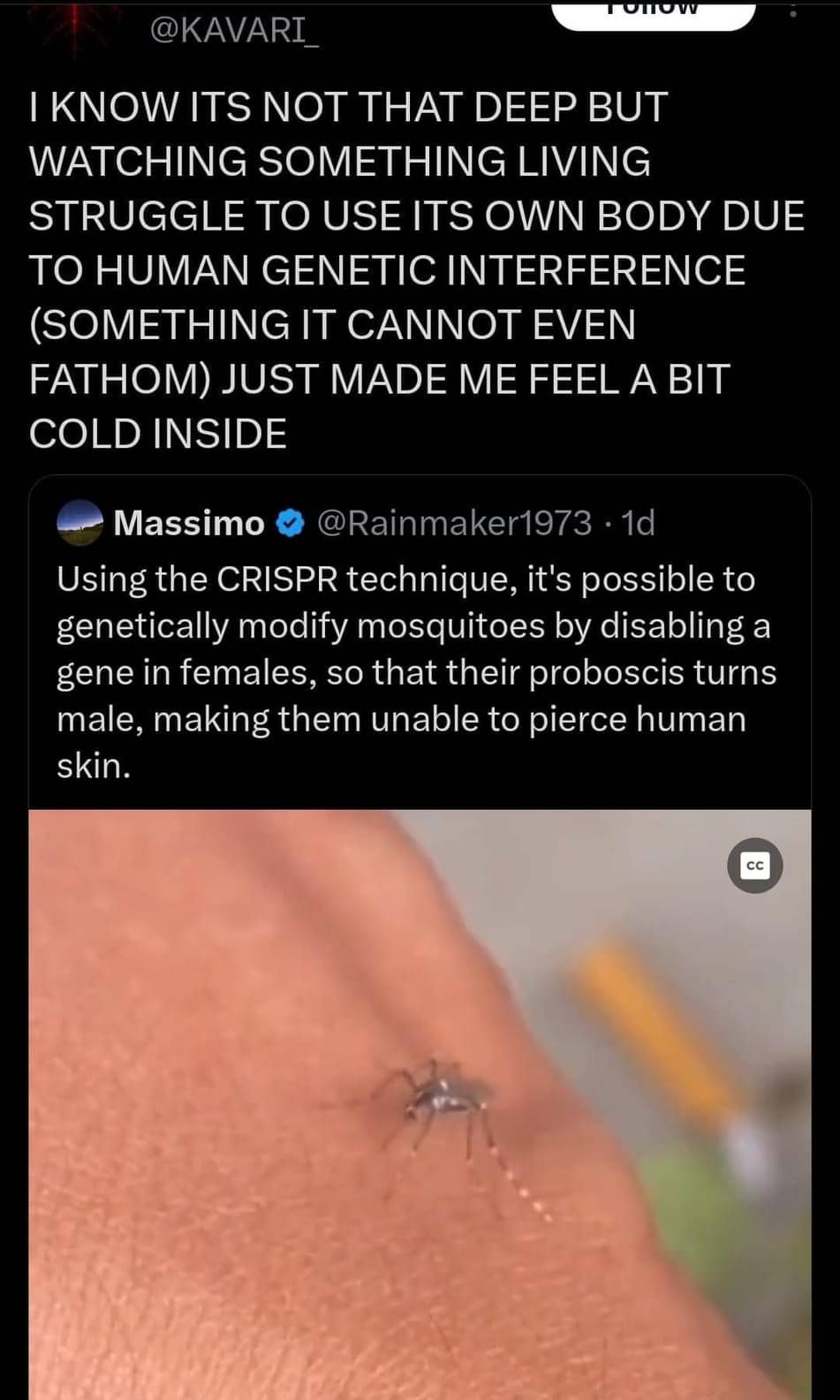this post was submitted on 14 Oct 2024
750 points (97.1% liked)
Science Memes
14590 readers
585 users here now
Welcome to c/science_memes @ Mander.xyz!
A place for majestic STEMLORD peacocking, as well as memes about the realities of working in a lab.

Rules
- Don't throw mud. Behave like an intellectual and remember the human.
- Keep it rooted (on topic).
- No spam.
- Infographics welcome, get schooled.
This is a science community. We use the Dawkins definition of meme.
Research Committee
Other Mander Communities
Science and Research
Biology and Life Sciences
- [email protected]
- [email protected]
- [email protected]
- [email protected]
- [email protected]
- [email protected]
- [email protected]
- [email protected]
- [email protected]
- [email protected]
- [email protected]
- [email protected]
- [email protected]
- [email protected]
- [email protected]
- [email protected]
- [email protected]
- [email protected]
- [email protected]
- [email protected]
- [email protected]
- [email protected]
- [email protected]
- [email protected]
- !reptiles and [email protected]
Physical Sciences
- [email protected]
- [email protected]
- [email protected]
- [email protected]
- [email protected]
- [email protected]
- [email protected]
- [email protected]
- [email protected]
Humanities and Social Sciences
Practical and Applied Sciences
- !exercise-and [email protected]
- [email protected]
- !self [email protected]
- [email protected]
- [email protected]
- [email protected]
Memes
Miscellaneous
founded 2 years ago
MODERATORS
you are viewing a single comment's thread
view the rest of the comments
view the rest of the comments

I wouldn't say that nothing bad happened. America -- particularly urban areas where anti-mosquito measures have been implemented -- has been dealing with declines of important populations of birds and insects, and we don't fully understand the exact causes. Which is to say, we don't know what role mosquito population reduction has played in this. We have vaccines against mosquito-borne illnesseses, which I believe are preferable to eradicating a species and the potentially devastating consequences we could encounter.
I would argue that habitat destruction, the introduction of hypercarivores, and chemical spraying would have a much larger effect on bird and insect populations around urban areas than a reduction in mosquitoes, but I'll admit that I haven't done any research (primary or secondary) on the topic.
My point was that a genetic attack vector would have far less side-effects than DDT, and pointing out the flaws of DDT does nothing to criticize attacking mosquitoes genetically.
That's true. Criticizing DDT was off-track.